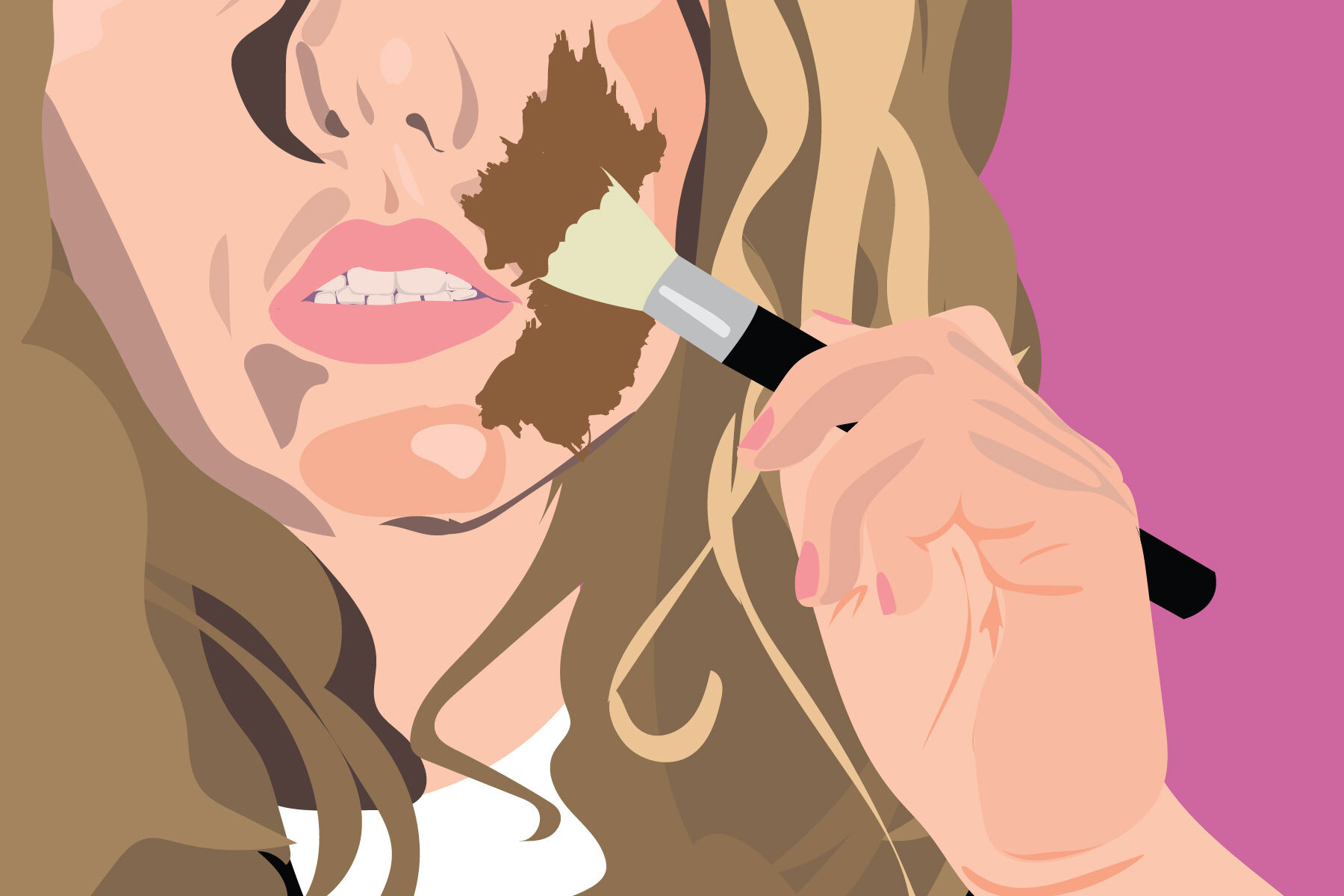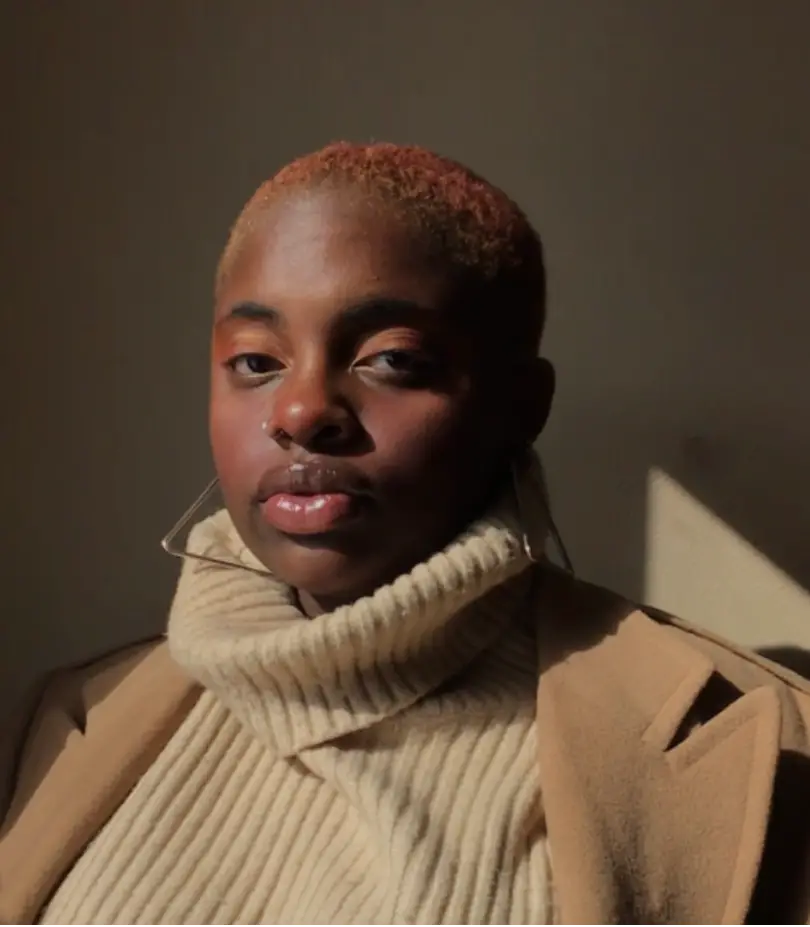When was the last time you saw a white woman who looked white? A run-of-the-mill, bonafide white woman sans a concealer several shades too dark and a hairstyle meant for black women. A quick dip into Instagram’s explore page makes it clear that this is becoming a rarer sight by the day. Once the epitome of beauty, looking like an average white girl simply doesn’t cut it anymore. The stringy hair and pale skin have been replaced by type 3A curls and a skin tone dark enough to imply blackness without becoming it.
Blackfishing is the term used to describe this phenomenon. Wanna Thompson’s expose thread went viral in November 2019 and listed countless influencers and celebrities posturing as black. Emma Hallberg is one of the most famous in the blackfishing crowd, although she denies any attempts at deceiving others about her race despite the stark difference in her before and after pictures.
https://twitter.com/wannasworld/status/1059989652487069696?lang=en
Before blackfishing, there was blackface, which refers to the practice of painting your face black to caricature black people, a practice that began post-Civil War in minstrel shows. These performances were based on stereotypes and used to dehumanize black people. Where blackface served to entertain, blackfishing is meant to pass as at least half black.
The blackfishing debate was resurrected when Danielle Bregoli posted to Instagram on April 6. Famous for her “Cash me outside” catchphrase from a 2016 “Dr. Phil” episode, Bregoli has since released an album and amassed a sizable following. Bregoli dismissed the claims of blackfishing and the pictures remain up on her Instagram.
https://www.instagram.com/p/B-o8oagpKiT/
Whether these internet personalities are attempting to alter their race isn’t up for question; no white woman goes from paper white to a light skinned black woman because of a tan. And even if they could, the aesthetics these women are using are clearly stolen from black women. Large hoop earrings, long acrylic nails and braided hairstyles are all derived from black women who have been doing it for decades. The question at hand is not if they’re stealing, but how the circumstances of this theft were created.
Look no further than the Kardashian-Jenner family to see how blackfishing became a cultural phenomenon. Kim Kardashian becomes a shade darker every year and has eased her way into wearing traditional black hairstyles like cornrows, which she referred to incorrectly as boxer braids. Since her rise to fame, Kim Kardashian has been called out for cultural appropriation multiple times, and yet she persists. Her relatives are no better — Khloe Kardashian stole the idea for one of her fashion lines from Destiny Bleu, and Kylie Jenner lifted ideas for camo printed tees from The Plugged NYC. The Kardashian-Jenner clan has taught a generation of white women that not only can they steal from black women, but that they can build a career out of it.
Considering all of them except Kourtney Kardashian are married to or have children with black men, you would think that they would be held accountable for their actions. The exact opposite is true. Black men are one of the main perpetrators of misogynoir, a term used to describe the specific discrimination black women face. All of these men know the culture their significant others are stealing from because they grew up watching their sisters and mothers live it, but the coveted accomplishment of dating a white girl is more important than any moral integrity.
The combination of white women eager to profit off another culture and black men willing to ignore their wrongdoings has created the perfect environment for blackfishing, although the term itself is a misnomer. These women don’t want people to think they they’re black because being a black woman is to create without credit, to support others with no support system. They want the culture washed clean of the ancestry and struggle it was born from.
Even the black body itself has been itemized and divided into parts for surgeons to replicate on white women. Full lips and a curvy figure that were undesirable 10 years ago are now the standard of beauty as long as you have the loose curls and light-but-not-white skin tone to match. Plastic surgery is an individual’s choice, but at some point we must acknowledge who these white women are getting surgery to look like.
White fragility is largely what allows white women to take everything black women have created and repackage it for white audiences because they are never held accountable for their actions. Any attempts to criticize them are met with crocodile tears or emotional outbursts that black women are labelled aggressive for. The Kardashian-Jenner family has proven that black men will not make any efforts to reprimand white women either and misogynoir prevents black women from being taken seriously when they address these issues.
One white girl blackfishing on Instagram is a microcosm of the larger commodification of blackness taking place. Black movements, like Black Lives Matter, are co-opted and parodied into greeting card catchphrases or bastardized entirely. Slogans like “Hot Girl Summer” are stolen and remixed into songs or entire branding strategies for corporations. Blackfishing is the latest iteration of taking the parts of black culture that are palatable to white people and extracting any blackness from it until it’s unrecognizable.
Bregoli and her blackfishing cohorts have no incentive to stop their transformations into poor imitations of black women because celebrities like the Kardashian-Jenners’ and black men encourage their behavior. Black women will continue to be stolen from unless a culture of respect for their innovation is created and white women are held accountable for their actions. The commodification of black culture will not rest until the public acknowledges that theft for what it is instead of claiming to appreciate a culture they can not and never will relate to. Until then, expect to see more black-lite white women on a timeline near you.

















